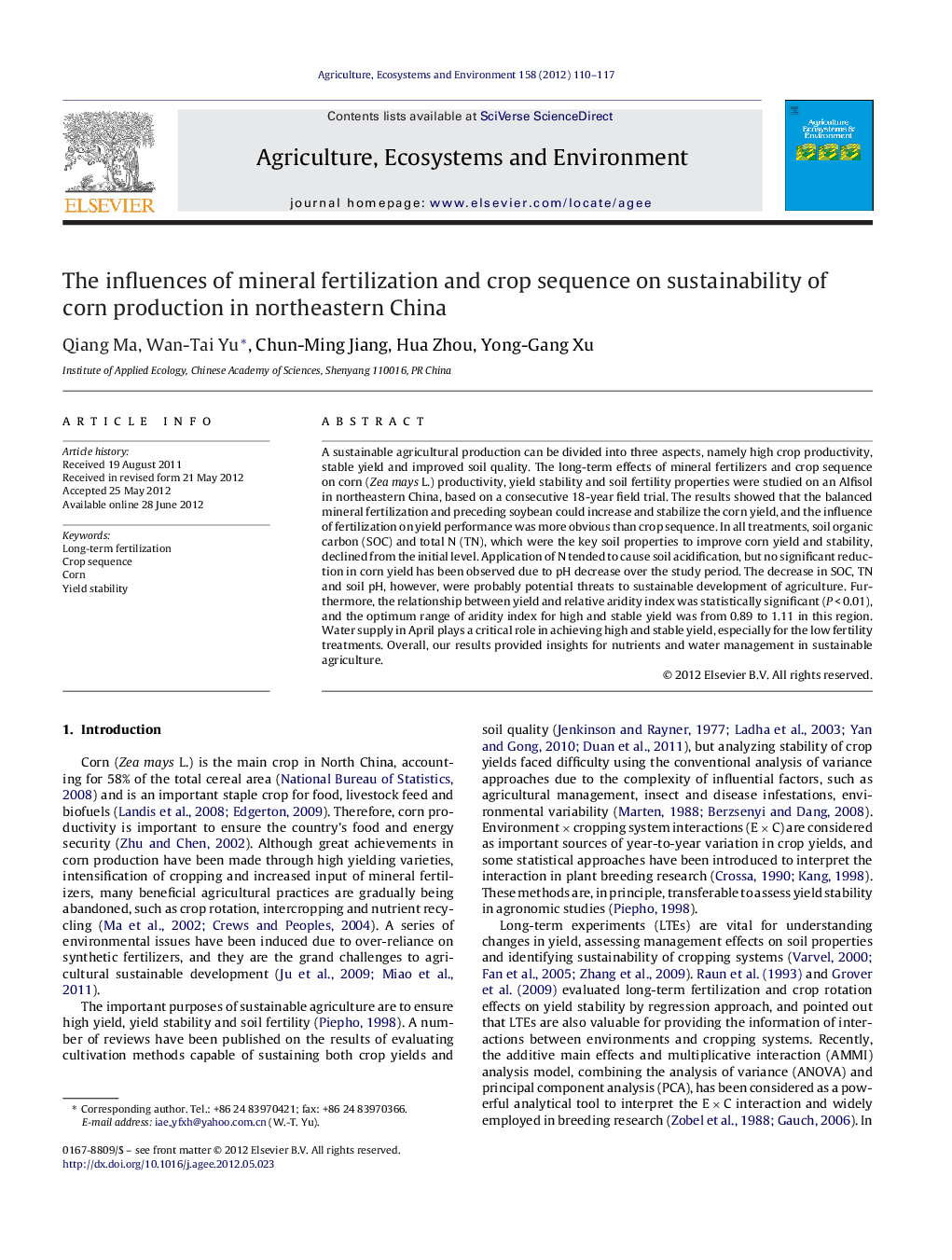| کد مقاله | کد نشریه | سال انتشار | مقاله انگلیسی | نسخه تمام متن |
|---|---|---|---|---|
| 2414497 | 1552094 | 2012 | 8 صفحه PDF | دانلود رایگان |

A sustainable agricultural production can be divided into three aspects, namely high crop productivity, stable yield and improved soil quality. The long-term effects of mineral fertilizers and crop sequence on corn (Zea mays L.) productivity, yield stability and soil fertility properties were studied on an Alfisol in northeastern China, based on a consecutive 18-year field trial. The results showed that the balanced mineral fertilization and preceding soybean could increase and stabilize the corn yield, and the influence of fertilization on yield performance was more obvious than crop sequence. In all treatments, soil organic carbon (SOC) and total N (TN), which were the key soil properties to improve corn yield and stability, declined from the initial level. Application of N tended to cause soil acidification, but no significant reduction in corn yield has been observed due to pH decrease over the study period. The decrease in SOC, TN and soil pH, however, were probably potential threats to sustainable development of agriculture. Furthermore, the relationship between yield and relative aridity index was statistically significant (P < 0.01), and the optimum range of aridity index for high and stable yield was from 0.89 to 1.11 in this region. Water supply in April plays a critical role in achieving high and stable yield, especially for the low fertility treatments. Overall, our results provided insights for nutrients and water management in sustainable agriculture.
► Effects of fertilization and crop sequence on corn production were studied.
► Mineral fertilizers achieved high and stable yield, but degraded soil quality.
► Fertilizer N acidified soil remarkably, which was not a yield-limiting factor yet.
► Yield associated with relative aridity index rather than other climatic factors.
► An optimum range of aridity index (0.89–1.11) favored high and stable yield.
Journal: Agriculture, Ecosystems & Environment - Volume 158, 1 September 2012, Pages 110–117